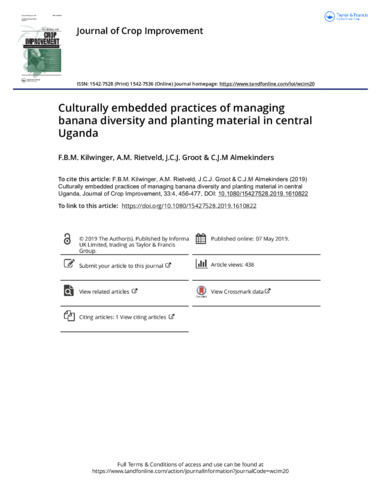Culturally embedded practices of managing banana diversity and planting material in central Uganda
Formal seed systems aim to provide farmers with high-quality planting material that meets evolving demands and cultivation challenges. East African banana (Musa sp.) systems rely strongly on informal seed exchange. For seed system interventions to have a larger and more sustainable impact in such a context, it is necessary to better understand the informal seed system. We studied the management and replacement dynamics around banana suckers and mats by smallholder farmers in Central Uganda. Data were collected through Focus Group Discussions (n = 4) and semi-structured interviews (n = 23). This study showed that, on average, banana farmers grew 10 different banana cultivars to ensure year-round harvesting and to accommodate multiple consumption and cultural needs. They included cultivars from the formal seed system within their portfolios of banana cultivars while also conserving cultivar diversity. Farmers used a broad array of evaluation criteria to select suckers and preferred to use known sources to assure plant quality. Household characteristics, such as age or wealth, are determinants of mat management and replacement. We concluded that a flexible blend of formal-informal approaches to developing the banana seed system is needed to meet the multiple needs of farm households and to support them in improving productivity and dealing with emerging challenges.

